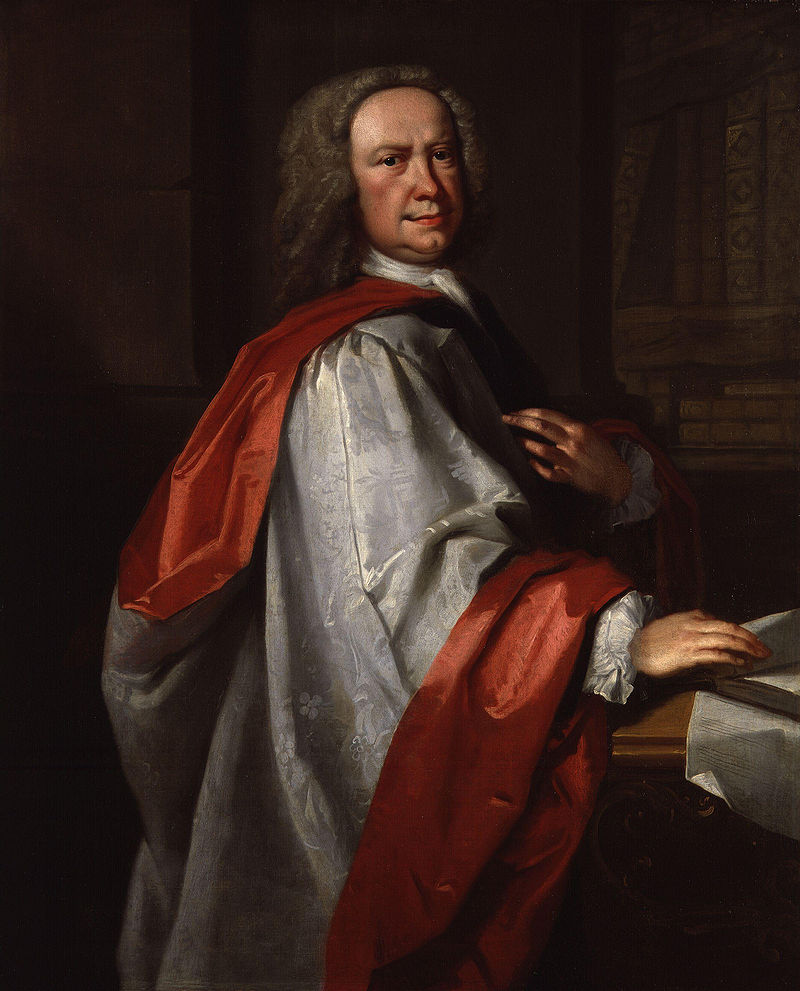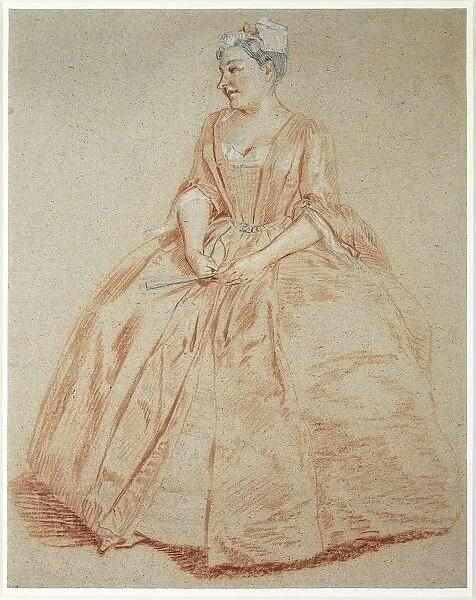Unmasking Maestros and Divas: Meet Dinner with Handel’s Most Intriguing Characters!
Picture George Frideric Handel, the revered composer, caught in the crossfire of conversations and confrontations with his rival, Johann Christoph Pepusch, opera diva Francesca Cuzzoni, and his dearest friend, Mary Pendarves. The air is thick with intrigue and anticipation as the characters navigate the complexities of their relationships, all against the backdrop of Handel’s London home.
With just a month until the most highly anticipated dinner party of the year, Dinner with Handel, we have much to do before the guests arrive.
As an honored guest, we want to assure you are fully up to speed with the cast of characters you will be rubbing shoulders with and thus, we have compiled a series of aperçus, précis, and anecdotes, about the most notable guests in attendance.
Meet the Guests
First, our titular attendee, and likely the character you are most familiar with: George Frideric Handel (1685-1759). The German-born composer eventually went on to take British nationality. He is best known for crafting Messiah, Water Music, and a series of Baroque Italian operas and English oratorios. Handel was also a very conspicuous fellow known for his gluttonous appetite and, as a man of fashion, was not to be seen in public without an enormous wig.
The composer was not always composed, sometimes even seen as short-tempered and intolerant. He did not put up with much of the drama from performers. It was said that once a tenor was so upset with Handel’s directness that he threatened to jump on the composer’s harpsichord and smash it. Handel simply replied, “Let me know when you will do that and I will advertise it: for I am sure more people will come to see you jump than hear you sing.”
Handel had various flings with singers in his youth, but he never married and managed to keep his private life private. Handel was wise with his money but was partial to some tasteful art: his impressive collection of some 60-odd paintings included several Rembrandts.
Then we have Gustavus Waltz, a German bass opera singer who, like Handel, eventually took on British nationality. He was known as an extremely talented contrapunto who worked as a soloist and in choral works.
Waltz ended up in England in (or just before) 1732. His first documented appearances on the musical scene were at the Haymarket Theatre in 1732. Waltz’s first collaboration with Handel was in 1733 when he appeared in La Semiramide riconosciuta, an opera pasticcio.
At some point, Waltz became Handel’s cook, and because Handel was known as something of a glutton, this arrangement adds a few interesting layers to their relationship.
There is an anecdote about Handel’s opinion of a fellow composer, his younger contemporary Christoph Willibald Gluck, in which Handel says of Gluck that “he knows no more of contrapunto, as my cook, Waltz.” What offhandedly sounds like a slight would likely have been a witty compliment considering the unusual circumstances, especially since Waltz performed in many of Handel’s works.

Next, we must familiarize you with Johann Christoph Pepusch (~1666/7-1752), a musical theorist and composer who was born in Berlin and worked in London for most of his life. Pepusch started his career as a teacher of notable musicians (such as William Boyce) and eventually musical director to the Duke of Chandos at Cannons where our very own Handel was the resident composer for two years during this period. It is even said that Pepusch had a certain dislike toward Handel, perhaps stemming from the years they worked together.
Pepusch is considered significant foremost for his teaching role, but is best known for his arrangement of the music for The Beggar’s Opera (1728) and he eventually composed works of all forms. He also enjoyed diversifying his skills and often made use in his work of popular dance forms such as the gigue and sarabande.

Meet Mary Pendarves (1700–1788), a dear friend of Handel. Pendarves was the daughter of a Colonel and was sent to live with her aunt, Lady Stanley, for a time during her formative years.
While living with Lady Stanley in the court system, Mary learned English, French, history, music, needlework, and dancing and eventually came into contact with Handel. This early connection with Handel blossomed into a lifelong friendship with the composer.
Pendarves eventually was married in her early twenties, but then widowed just four short years later and left nearly penniless.
It was in the next two decades after becoming a widow that Mary lived with various friends and relatives, kept herself quite busy with painting and drawing, and kept company with fascinating figures including Captain Cook, Handel, Jonathan Swift, painter William Hogarth, and botanist Joseph Banks.
She married again in her forties (for twenty-five years this time) before being widowed and, again, left without any estate or trust to secure her financial future.
Despite her lack of resources, widowhood provided new opportunities for Pendarves. Since widows, unlike unmarried women, were able to move freely in society, for the first time in her life Pendarves was able to pursue her own interests without the oversight of any man.
In her early 70s, Mary began to decoupage, a fashion with ladies of the court. Her works were detailed and botanically accurate depictions of plants, using tissue paper and hand coloration. She created 985 of these works, calling them her “Paper Mosaiks” from the age of 71 until her eyesight started to fail at 88.

Let us take the drama up another notch and introduce you to one of the first great prima donnas and final honored guest for our upcoming dinner: Francesca Cuzzoni (1698-1770). Cuzzoni studied with Francesco Lanzi and made her debut in Venice in 1718 as Dalinda in Carlo Francesco Pollarolo’s Ariodante. This fiery-tempered soprano headed to London in 1722 to personify Teofane in Handel’s Ottone.
Star singers were essential for the success of Handel’s opera seasons. Still, even he knew that sometimes they could be troublesome, including embarrassing scenes such as when Cuzzoni refused to sing one of Handel’s arias, complaining it had originally been written for another singer. Handel met these tantrums with similar theatrics and threatened to toss her out of the window if she didn’t do as she was instructed. Handel won this dispute, thankfully.
Cuzzoni went on to perform as Cleopatra, Asteria, Rodelinda, and Antigona under the guide of Handel.
As Cuzzoni’s star rose, so did her feud with the mezzo-soprano Faustina Bordoni. Cuzzoni was not happy sharing a stage with Bordoni, a younger and conventionally more acclaimed beauty. Capitalizing on the drama in the social rags, Handel and his fellow composers wrote a series of operas forcing the two female leads together on stage. Each producer had to take extreme caution to give them equal prominence in each piece they were cast in. The rivalry became a public feud where aristocrats visibly took sides, and society types would coordinate their attire to align with their respective heroines and would audibly boo and jeer when the other was onstage.
Eventually, the dispute got out of hand. A performance of Bononcini’s Astianatte had been arranged with Cuzzoni and Bordoni in the lead roles. Despite the presence of Princess Caroline in the audience, the crowd devolved into pandemonium. Like Handel, Bononcini had divided the arias equally between the leading ladies, but the singers were drowned out and it became an unwatchable performance.
This division was even preyed upon in The Beggar’s Opera where the fighting divas were immortalized as its bickering heroines Polly Peachum and Lucy Lockit. What a marvel that must have been.
See You at ‘Dinner with Handel’
Now that you’ve become acquainted with our unforgettable guests, we hope you will delight in all the delicious tidbits woven into the opera. We cannot wait to share our North American Premiere of Dinner with Handel with you.
For additional information and tickets to the Feb 10-11 performances, head over to our site.
And, we are delighted to share that, thanks to the generous support of our sponsors Union Pacific Foundation, Bette Worcester, and The Autzen Foundation, Dinner with Handel will be filmed and available online for streaming. More details on the timing and specifics to come in February.
